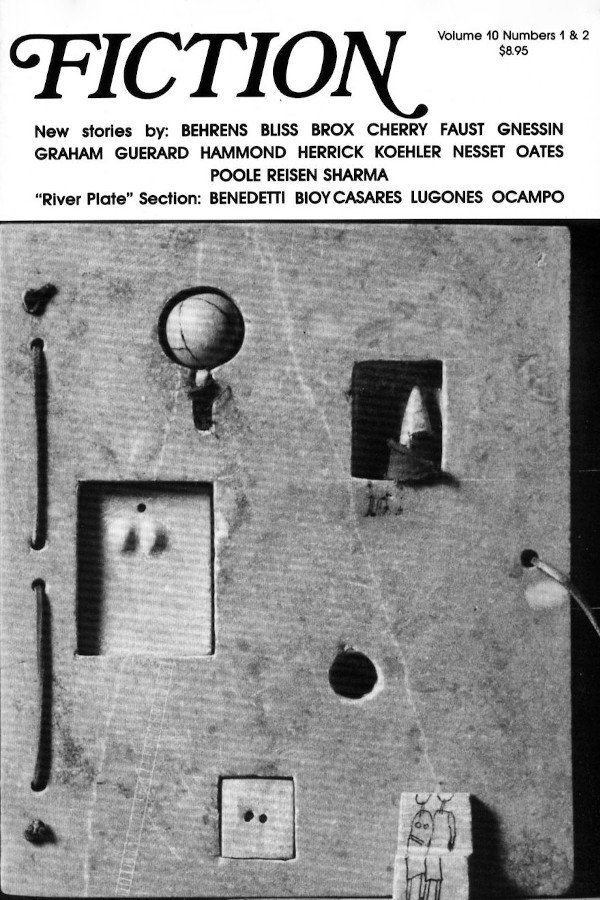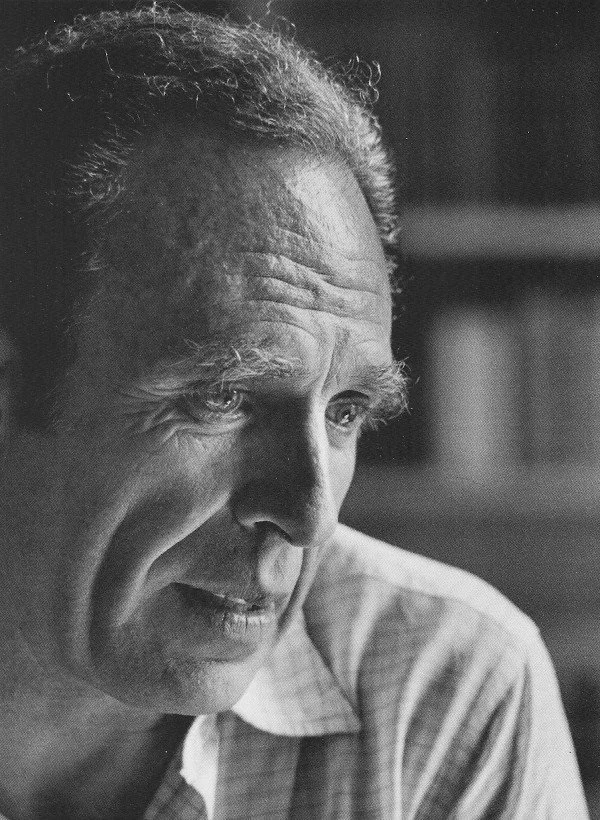by Silvina Ocampo
&
Adolfo Bioy Casares
Translated by Diana Thorold
Excerpted from Fiction Volume 10, Numbers 1 & 2 (1991).

Tasteless but comforting, the last granules of arsenic (arsenicum album) are melting in my mouth. To the left, on my desk, I have a copy of the Satyricon of Caius Petronius, in Bodoni’s beautiful edition. To my right the fragrant tea tray, with its delicate porcelain china and its appetizing little pots. The pages of the book seem worn from countless readings; the tea is China tea; the toast in thin and crisp; the honey is from bees who sucked on acacia flowers, on thyme and lilac. It is here, in this private paradise, that I shall start to write the story of the murder at Bosque del Mar.
As I see it, the first chapter is set in a restaurant car on the night train to Salinas. I was sharing my table with a couple who were friends of mine—dilettantes in literature, and lucky in livestock—and an unidentified young girl. Stimulated by the consommé, I spelled out my plans to them: In search of delightful and productive solitude—in other words, in search of myself—I was on my way to the latest health resort to be discovered by us, the most refined enthusiasts of the natural life—Bosque del Mar. I had been cherishing this plan for some time, but the demands of the consulting room (I belong, I have to confess, to the confraternity of Hippocrates) meant postponing my vacation. The couple listened with interest when I told them, quite truthfully, that although I was a respectable doctor—I followed faithfully in Hahnemann’s footsteps—I also wrote film scripts, with varying degrees of success. And now that Gaucho Films, Inc., had commissioned me to adapt Petronius’s rambunctious book to a contemporary Argentine setting, it seemed imperative to find myself a quiet seaside retreat.
The full story can be found in Fiction Volume 10, Numbers 1 & 2. Please follow the subscribe link for information on ordering.



Silvina Ocampo (1903–1993) was born to an old and prosperous family in Buenos Aires, the youngest of six sisters. After studying painting with Giorgio de Chirico and Fernand Léger in Paris, she returned to her native city—she would live there for the rest of her life—and devoted herself to writing. Her eldest sister, Victoria, was the founder of the seminal modernist journal and publishing house Sur, which championed the work of Jorge Luis Borges and Adolfo Bioy Casares, whom Ocampo married in 1940. The first of Ocampo’s seven collections of stories, Viaje olvidado (Forgotten Journey), appeared in 1937 (one of which, “Florindo Flodiola,” is featured in Fiction No. 64); the first of her seven volumes of poems, Enumeración de la patria (Enumeration of My Country) followed in 1942. She was also a prolific translator of Dickinson, Poe, Melville, and Swedenborg, and wrote plays and tales for children. The writer and filmmaker Edgardo Cozarinsky once wrote, “For decades, Silvina Ocampo was the best kept secret of Argentine letters.”